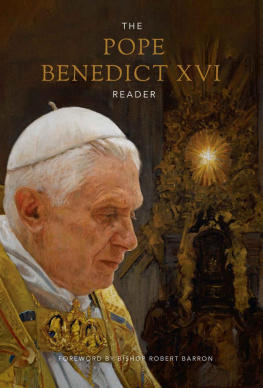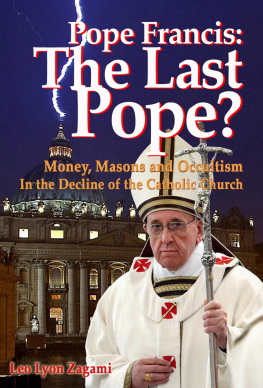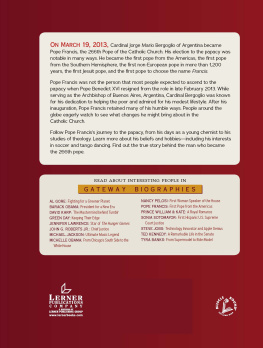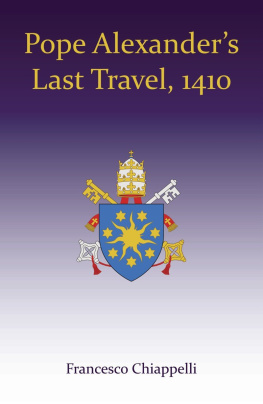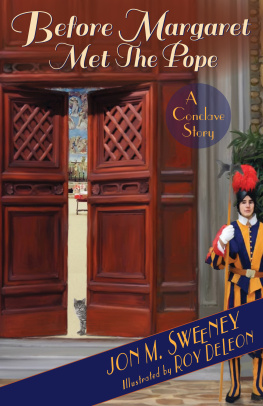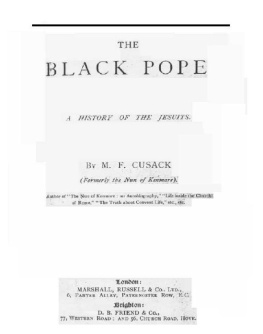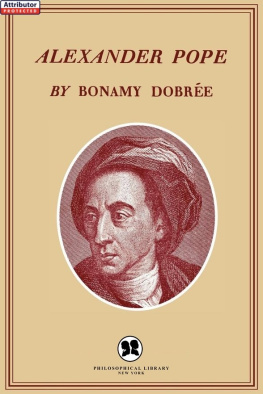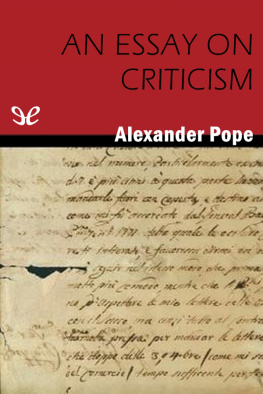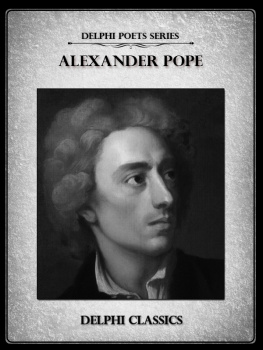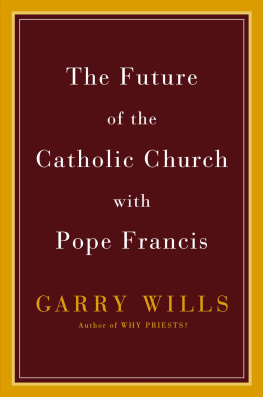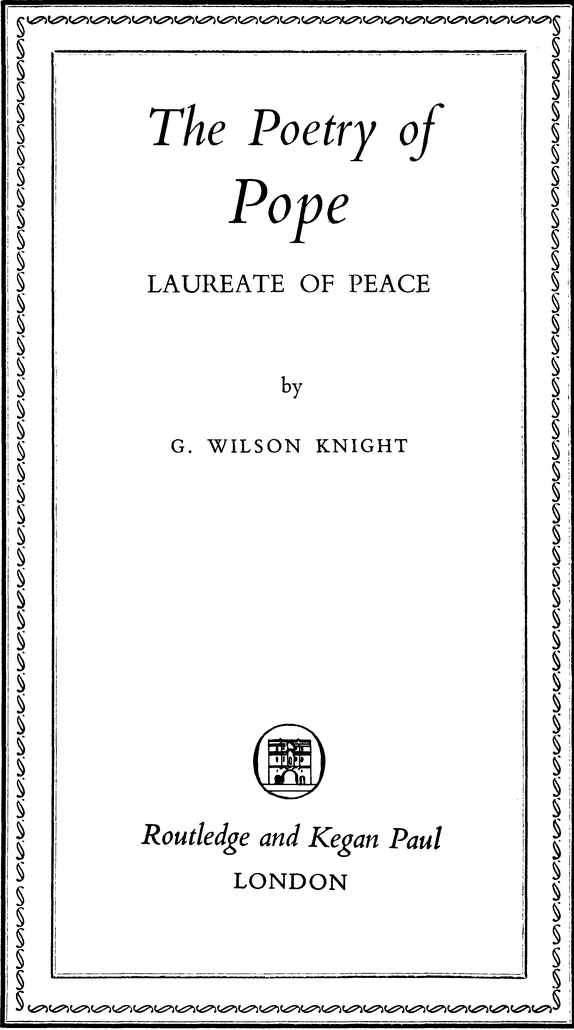Routledge Revivals
The Poetry of Alexander Pope
First published in 1955, this exegesis on the writings of Alexander Pope reveals the technical felicities of his poetry, and is the first to be devoted to the great meaning inherent in his work. One section, which has appeared before and did much to redirect the study of Pope, has been thoroughly revised. Of the other four chapters, one offers an original of The Temple of Fame, and, while discussing this neglected poem, makes several suggestions which may be said to constitute a significant advance in aesthetics. Another analyses Byrons support of Pope, regarding it as a landmark in the history of English literary criticism and as necessary to the understanding of Pope and Byron alike. The last chapter discusses the relation of Popes thought to our own time. This book adds much to what is already known of Pope, and will go far in reviving an interest in the work and philosophy of the Laureate of Peace.
The Poetry of Alexander Pope
Laureate of Peace
George Wilson Knight
First published in 1955
by Routledge & Kegan Paul
This edition first published in 2018 by Routledge
2 Park Square, Milton Park, Abingdon, Oxon, OX14 4RN
and by Routledge
711 Third Avenue, New York, NY 10017
Routledge is an imprint of the Taylor & Francis Group, an informa business
1955 George Wilson Knight
All rights reserved. No part of this book may be reprinted or reproduced or utilised in any form or by any electronic, mechanical, or other means, now known or hereafter invented, including photocopying and recording, or in any information storage or retrieval system, without permission in writing from the publishers.
Publisher's Note
The publisher has gone to great lengths to ensure the quality of this reprint but points out that some imperfections in the original copies may be apparent.
Disclaimer
The publisher has made every effort to trace copyright holders and welcomes correspondence from those they have been unable to contact.
A Library of Congress record exists under ISBN: 65029516
ISBN 13: 978-1-138-30713-1 (hbk)
ISBN 13: 978-1-315-14237-1 (ebk)
First published in 1955
Published as a Routledge paperback 1965
by Routledge & Kegan Paul Ltd
Broadway House, 68-74 Carter Lane
London, E.C.4
G. Wilson Knight 1965
No part of this book may be reproduced
in any form without permission from
the publisher, except for the quotation
of brief passages in criticism
To
JOHN COWPER POWYS
artist, teacher, seer
in
admiration
Originally published as
LAUREATE OF PEACE: ON THE GENIUS OF
ALEXANDER POPE
Contents
Guide
ON the presentation of this studythe first, so far as I know, to be devoted to the total contents, as opposed to the style in isolation, of Pope's poetic worka few preliminary notes may prove helpful.
The book is composed of five sections, all but one of which are new.. The opening is in the nature of a general survey intended to make a rough stage-setting for what follows.) in respect to the Essay on Man . Such defences are forced on me by the nature of the opposition which my methods of interpretative analysis are still, after twenty-five years, receiving in England. An attempt is made to clarify the issue in my third section, a study of the unjustly neglected Temple of Fame , in the course of which I have occasion to discuss the mutually interpretative functions of the arts of space and time in direct relation to my own technique of spatial interpretation.
The fourth section is given to Byron's praise of Pope. Of this I knew nothing when I composed 'The Vital Flame' some sixteen years ago, and, when I came across it during my Byronic studies, I was indeed gratified to find that my own understanding of Pope had been so closely paralleled by Byron. If I was mad in respecting Pope's 'message', in which he himself so ardently believed, I was mad in excellent company; and even those who most rigorously oppose my refusal to limit my studies to discussions of biography, sources, technique and the manipulation of language, will, I hope, agree that the triangle made of Pope's reiterated claims, Byron's ringing acceptations, and my own interpretations of both Pope and Byron is, to say the least, a self-consistent and harmonious entity. But to many readers it will, I hope, be rather more than that.
My final section discusses Pope s poetic thought in relation to our own time. It has for long been my practice, both as a university lecturer and as a writer, to insist at every turn that what we call great literature is only great to us in so far as it radiates living meanings, today; and it has always appeared to me both strange and sad that the treatment of literature as rooting backwards into sources and causes should in every age be academically honourable, while any attempt to establish contact with its forward pointings is considered the preserve only of amateurs and cranks. This contact can be greatly assisted by stage-production, or public reading: my own understanding of Pope was first awakened by listening to Professor D. Nichol Smith's reading of certain passages, during his lectures, at Oxford, in 1922.
Great poetry speaks to us with a living voice. When in the summer of 1950 my brother and I wanted words for a bronze tablet to be placed by a memorial tree to our mother in the Garden of Remembrance at Lawnswood, our choice fell on a couplet from the Essay on Man:
Safe in the hand of one disposing Pow'r,
Or in the natal, or the mortal hour.
That Pope should have provided the words we wanted is, perhaps, worth the recording; and it may also be worth recording that it seemed, to us at least, natural enough that such a need should be met by words of Pope.
It is a pleasant duty to acknowledge the courtesy of Messrs. John Lane the Bodley Head Ltd. and of Mr. John Cowper Powys in allowing me to use an extended quotation from Mr. Powys' Rabelais .
My line references to Pope and Shakespeare follow, respectively, the Globe and the Oxford texts.
G. W. K.
1954
I rather think that my characterizing (on pp. 7-9) of literary periods in terms of certain favoured mechanisms may owe something to a conversation with Professor Lewis Horrox some twenty years ago.
I take this opportunity to pay my tribute to the excellence of the Twickenham edition, now nearing completion under the general editorship of John Butt.
I
Diction and Doctrine
At the start of the eighteenth century a new way of life was being established in England, The fruits of the Revolution were maturing. Under Queen Anne party politics were getting, if at first rather unsteadily, into their stride, as a safeguard against bloodier methods; new classes were rising rapidly to education, power, and prestige; there was peace and renewal after distraction and unrest. The age of Anne recaptured, in its own fashion, something of that assurance, and more than something of the harmony, of the age of Elizabeth I. Its poet was Pope: 'Be mine the blessings of a peaceful reign.'
Dante, Shakespeare and Pope all reflect a unified and harmonious life-view; but Milton does not. The medieval synthesis assists Dante's creation of a circular system within which, like the figures on Keats' urn, the various turmoils of human existence could be placed. The problems handled by Shakespeare were, if not greater, certainly more involved. Dante used neither epic nor drama; neither physical nor spiritual conflict assumed even a provisional autonomy; all was settled, labelled, and in its place, and action at a discount. At a period of balance after civil turmoil and national victory, Shakespeare's work shows a subtle interplay of militaristic and spiritual conflict; the main emphasis falling on the spiritual, at most, except for Henry V , on civic or civil, conflict; and the expression is accordingly drama. There is not the controlling serenity of Dante, and yet, considering the great forces, medieval and Renaissance, at play, the resulting harmony is remarkable. The triumph is more a triumph of insight into the central stuff of man than a triumph for 'order' or 'tradition', though order and tradition are part of the final synthesis.In Shakespeare the individual man's aspiring quest is variously contrasted with, overrules, or is subdued to, concepts and visions of harmony; tempests interweave with music, the music is wrenched out of, one with, the tempests; man himself becomes cosmic.


